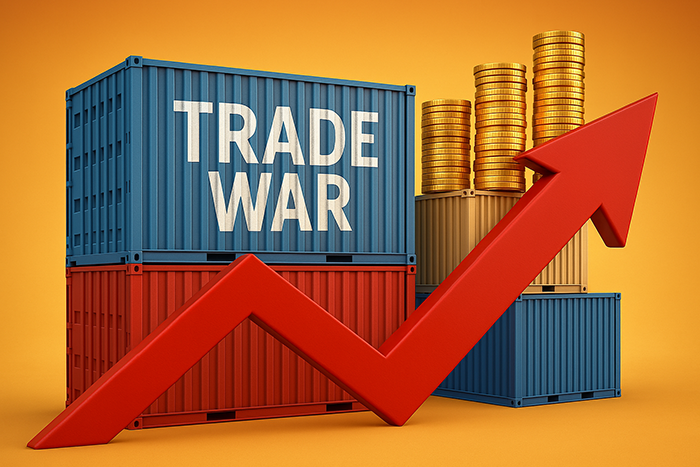2025-04-15
indicators

Growing global trade tensions are prompting businesses to reassess their risk strategies, with rising tariffs and geopolitical uncertainty leading to a sharp increase in demand for credit insurance. Recent trade measures announced by the United States are reshaping global supply chains and heightening concerns about payment defaults and business insolvencies. President Trump’s 2025 tariff policies—including a universal minimum tariff and increased rates for selected countries—have pushed the average US tariff rate to levels not seen in over a century. While a temporary halt in tariffs was granted to several trade partners, others, including China, face significant increases, with some duties rising to 125%. The lack of clarity on future measures is adding to market uncertainty. Industries with complex international supply chains—such as machinery, motor vehicles, and electronics—are expected to be the most affected. Global growth projections for these sectors have already been revised down, with machinery forecast to lose 5 percentage points of growth in 2025–2026. Domestically focused sectors like food and beverage are less directly exposed but are likely to feel the impact of broader economic consequences, including rising prices and declining consumer demand. The narrowing gap between the announcement and implementation of tariffs has left businesses with limited time to prepare. As a result, many are turning to credit insurance as a protective measure. Insurers anticipate increased demand for short-term policies, though the longer-term implications remain uncertain due to policy volatility and the potential for a broader economic slowdown. According to Atradius, global trade growth forecasts have been adjusted downward to 2.5% for both 2025 and 2026, compared to previous estimates of 3.3% and 3.0%. Tariffs are expected to weigh on demand and deter investment, especially in capital-intensive industries. The resulting inflationary pressures could also lead to tighter monetary policy, further raising costs for businesses. Credit insurers report a growing expectation of claims, particularly in sectors such as automotive, construction, and commodities. The Berne Union’s latest survey shows an anticipated rise in payment defaults, reflecting the increased strain on businesses already facing sluggish growth and existing financial pressures. Despite the challenging environment, some trade activity is expected to continue in the short term, albeit along rerouted supply chains. Credit insurance is seen as a vital safeguard, offering businesses greater confidence as they navigate uncertain conditions. However, the broader picture remains cautious, with many companies adopting a “wait and see” approach, delaying investment and avoiding major new commitments. As trade dynamics shift, the role of credit insurance in managing commercial risk is likely to become increasingly central. The ongoing tension between major economies, combined with rising protectionism, is creating a fragile trade environment that demands careful planning and financial protection. Source Author: Silvia Ungaro, Senior Advisor, Atradius N.V.

